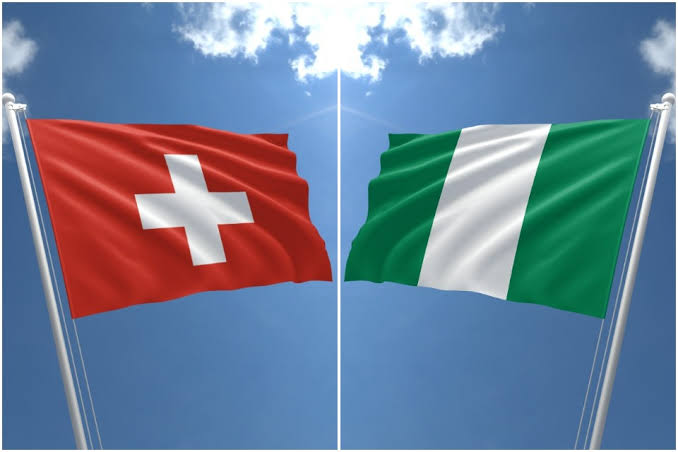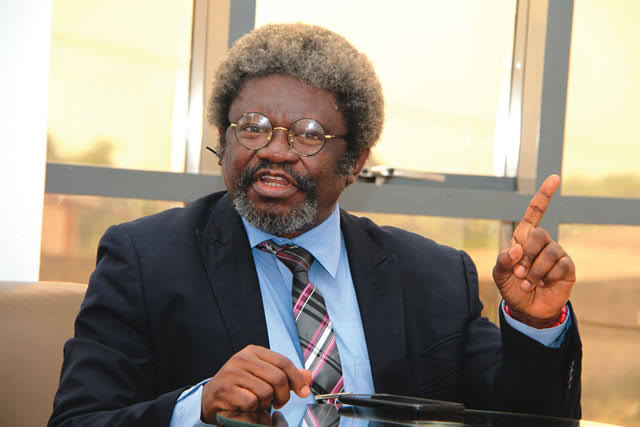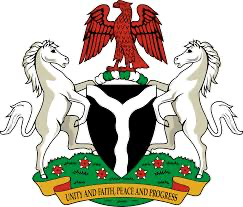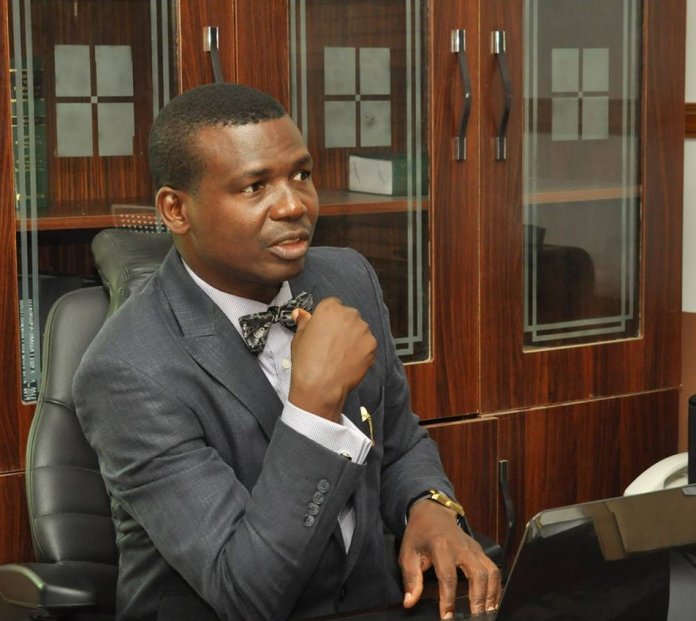Switzerland: A Case Study for Nigeria By Uche Young Ndumele
Recently with all that have happened and is happening in Nigeria, I started to think of a way forward for our country. This is essentially as many have argued that Nigeria was not “created” to be a sustaining country but for the economic benefit of British imperial hegemony (Maiangwa et al 2018). As Maiangwa et al (2018) argue, the different peoples making up Nigeria today had little or nothing in common before the imposing of Europeanism in Africa. Consequently, these different peoples whom some number to be more than 520 distinct ethnic nations (Simons and Fennig 2017) with some being nation of nations (Hanna 1979) got fused together as Nigerians with the merging of all sections of British interest (Maiangwa et al 2018) that culminated in the amalgamation of Northern and Southern Protectorates of Nigeria in 1914 (Alabi 2022). More than a century since this fusion, one does not need a soothsayer to see that the amalgamation is not really working.
As it is, Nigeria has passed through all kinds of conflicts; and at all fronts, since 1914 (Kinnan et al 2011, Kukah 2011 and Alabi 2022). The mutual suspicion existing in the polity cannot be swept under the carpet. This is especially if Nigeria would avoid crumbling. There is nothing like “it can’t happen” or “God forbid” as we usually say because nothing here is cast in stone. It is either everyone agree or some agree or that no one agrees (as have been the case). Yes, we have refused to agree on accepting the lot bequeathed to us by hegemonic Britain. It is upon this that I began to think of a way forward for our country. There is a indeed the need to think in this light because Nigeria would definitely implode someday soon should we continue with the status quo. Comparing different political systems, I compared especially those with federal structures and decided to toe the line of the Swiss Confederation as an example for a better Nigeria.
With a population of about 8.703 million in 2021, Switzerland has four main linguistic and cultural regions. These are German, French, Italian and Romansh. These four form the Swiss national languages (Article 4 of the Swiss Constitution (the Swiss Constitution) 1999). Notwithstanding that its population are mainly German-speaking, national identity is fairly cohesive as it is rooted in a common historical background and shared values hence their peculiar system of government; federalism through direct democracy. Its federal structure is composed of 26 Cantons with federal authorities based in Bern. A close look at Bern; known not really as a federal capital but a “de facto capital”, reveal that though the federal parliament and government operate from it, other federal institutions like the judiciary are in other cities. The Swiss Cantons have increased from being just 8 in 1353 to 26 in 1999 (Andre 2012) just as Nigeria has moved from being 2 Regions in 1914 to 36 states and the FCT today (Kukah 2011).
Global wealth databook 2019 report that Switzerland ranks among the world’s most developed countries. For instance, it has the highest nominal wealth per adult and ranked eighth in GPD per capita. It also ranks first in the Human Development Index in 2021 and have continued to impress on many international metrics. According to USA Today (2020) some of it cities; Zürich, Geneva and Basel etc., rank among the highest in terms of quality of life. And of course, you expect that such would attract high cost living expenses (Euronews 2020). It is interesting to note that Switzerland has maintained a policy of armed neutrality since the 16th century and has not fought an international war since 1815. Though it only joined the UN in 2002, Switzerland has been home to many international institutions including the Red Cross, WTO, FIFA, ILO and the UN. It is a founding member of the EFTA however not a member of the EU, the EEA or the Eurozone. Not being members of these institutions, Switzerland however, participates in the European single market as well as the Schengen Area through bilateral treaties (Andre 2012). Its foreign policy include frequent involvement in global peace building (Fleiner et al 2005). This is how peaceful Switzerland has been.
The peace depicted above coupled with the security and development modern the Swiss state enjoy today is deliberate. Like Nigeria, Switzerland faced many challenges even among its four ethnic groups. However, most of its then crises were as a result of the quest of religious supremacy where Catholics tried to set up a separate alliance. Some of these ethnic/religious challenges are the Zuriputsch crisis of 1839 and the civil war in 1847. Some argue that the outcome of the civil war convinced the Swiss to unite. Consequently, Swiss from all strata of society; ethnic groups, Catholics, Protestants, liberal, conservative etc., realised that the Cantons would profit more from merging their economic and religious interests instead of fighting (Lambert 2022).
Notwithstanding that Switzerland has a population of less 10 million people and its ethnic groups are only just 4 main divide, “Swiss identity” transcends language, ethnicity, culture, religion and political institutions. This is part of the reason Switzerland is described as a “Willensnation” which translate to “nation of volition” rather than a nation by coercion or even a nation-state (Nico 2019). Article 3 of the Swiss Constitution stipulates that “The Cantons are sovereign insofar as their sovereignty is not limited by the Federal Constitution; they shall exercise all rights which are not transferred to the Confederation” hence, they “define the tasks which they shall accomplish within the framework of their powers (Article 43 of the Swiss Constitution). For Nigeria, the case is different. Section 2(1) of the Constitution of the Federal Republic of Nigeria (1999) (Constitution of FRN) autocratically stipulates that “Nigeria is one indivisible and indissoluble sovereign state” and some of our leaders have used every given opportunity to emphasize this provision notwithstanding that it runs contrary to the obvious fact that Nigeria is not “indivisible and indissoluble”. Sometimes, one would want to think whether our leaders understand the simple meaning of governance and political systems. But we should not blame them as they are only concern with upholding colonialism in a neocolonialist structure because, even the biblical state of Israel created by God got divided at some point then became defunct (and of course, present day Israel has nothing to do with the biblical Israel in this context) how much more an artificial entity created for Eurocentricism.
As highlighted above, the basis of modern Swiss federal constitution is on its 1848 Constitution. However, the prevailing constitution today is the Swiss 1999 Constitution revised in 2002 (and though, English is not an official language of the Swiss, the 1999 constitution is translated into English by the Swiss Federal Chancellery). It is worth stating a few ideal facts of the said constitution. It is interesting to note that Article 44 of the Swiss Constitution provides for the following:
The Confederation and the Cantons shall collaborate, and shall support each other in the fulfillment of their tasks;
They owe each other mutual consideration and support. They shall grant each other administrative and judicial assistance; and
Disputes between Cantons, or between Cantons, and the Confederation shall, to the extent possible, be resolved through negotiation or mediation.
Article 45 of the Swiss Constitution also provides for Cantons “Participation in Federal Decision Making”, for instance, Article 45(1) states that “… the Cantons shall participate in the decision-making process on the federal level, in particular in federal legislation”.
Article 45(2) also provides that “the Confederation shall inform the Cantons timely and fully of its plans; it shall consult them if their interests are affected”.
The above could be argued to be a direct contrast on the relationship between Nigeria’s Federal Government and State Governments based on the provisions of Section 4 of the Constitution of FRN. For instance, Section 4(1) of the Constitution of FRN stipulates that “The legislative powers of the Federal Republic of Nigeria shall be vested in a National Assembly for the Federation.” It is clear that the “Federation” in this context is the whole of Nigeria. This authority is seen in the Exclusive Legislative List provided for in Section 4(2) which is solely for the Federal Government. Compounding issues, Section 4(4) also empowers the National Assembly to legislate on the Concurrent Legislative List (a responsibility shared between the National Assembly and House of Assembly (of states)) as well as “any other matter with respect to which it is empowered to make laws in accordance with the provisions of this Constitution”. Such is an express gaging of the states making up the federation bearing in mind that federalism is a political system composing of component (equal) units. This is because, any law made by the National Assembly based on the Concurrent List automatically overruns that of the House of Assembly should there be a contrast (Alabi 2022).
Another point in reference for the Swiss Constitution is that it provides for a central authority and gives the Cantons the right to self-government because the Cantons are sovereign (Article 3). It also adheres to the principles of separation of powers for its Three Arms of Government (Berne 2016). The Preamble of the Swiss Constitution stipulates the following:
“In the name of God Almighty!
We, the Swiss People and Cantons,
whereas, we are mindful of our responsibility towards creation
resolve to renew our alliance to strengthen liberty and democracy, independence and peace in solidarity and openness towards the world
are determined to live our diversity in unity respecting one another
are conscious of our common achievements and our responsibility towards future generations;
and know that only those remain free who use their freedom, and that the strength of people is measured by the welfare of the weakest of its members
now, therefore, we adopt the following Constitution:
With the understanding of the Swiss Preamble above, compare with the Preamble of the Constitution of FRN stating the following below:
“We the people of the Federal Republic of Nigeria
Having firmly and solemnly resolve, to live in unity and harmony as one indivisible and indissoluble sovereign nation under God, dedicated to the promotion of inter-African solidarity, world peace, international co-operation and understanding
And to provide for a Constitution for the purpose of promoting the good government and welfare of all persons in our country, on the principles of freedom, equality and justice, and for the purpose of consolidating the unity of our people
Do hereby make, enact and give to ourselves the following Constitution:-”
It is public knowledge that our so-called constitution did not originate from where it claims to emanate; “We the people of the Federal Republic of Nigeria”. This is unlike the Swiss Constitution. Our constitution rather emanates from the barrel of gun; Armed Forces of Nigeria (AFN). For me, I have had the privilege of handling a copy of the original print of our said constitution and its very first page which is hidden from the general public refers to the document as a “decree”. Unfortunately, even our very most intelligent and enlightened, and even highly expectant leaders have not had the reason to bring up this issue ensuring that we have a constitution representing the various peoples making up Nigeria. Where some, without the wherewithal, talk about the importance of an autochthonous constitution in any manner, a grave mass of people either from a standpoint of sponsorship or from that of stark ignorance descend on them. This is notwithstanding the fact that it is a given that everyone knows that our constitution is a decree (and should be better tagged something like “General Abdulsalami Abubakar Decree” just as we have “Clifford Constitution”, “Sir Richard’s Constitution” etc.). This attitude has a lot to say about our mental/psychological state as a people; if we do not have an agreement as to a simple legal document that regulates our polity, how then do we expect magic in the name of good governance, leadership and accountability not to imagine development? The constitution should be our first point of action if indeed we are serious. Unfortunately, the reverse has been the case over the years. This is the reason many agitate.
Another important position of the Swiss Constitution is seen in its Article 1 where the peoples making up the Swiss Confederation are listed. This authenticate the earlier assertion where the various peoples decided on their own accord to merge and have a common Swiss identity for unity, profit making among other interests. More so, its Article 47 ensures the autonomy of the Cantons which the “Confederation shall respect” alongside the Cantons various constitutions (Article 51).
Comparing again the above with that of Nigeria, Section 1(1) of the Constitution of FRN holds that “This Constitution is supreme and its provisions shall have binding force on the authorities and persons throughout the Federal Republic of Nigeria”. How would an imposition by the AFN be supreme to the will of the sovereign; the people? There has not been any time in the history of Nigeria where the various peoples making up the entity agreed to be known as “Nigerians”. More so, even where some individuals from various parts of the country participated in some constitutional development, such individuals have never really represented their various peoples rather, they participated on the platforms of political parties (Alabi 2022). And it is argued that such participations were mere formality.
Article 3 of the Swiss Constitution stipulate that the “Cantons are sovereign insofar as their sovereignty is not limited by the Federal Constitution”. Consequently, “they shall exercise all rights which are not transferred to the Confederation”. The contrary is the case with federalism in Nigeria. For instance, Section 2(2) of the Constitution of FRN stipulates that “Nigeria shall be a Federation consisting of States and a Federal Capital Territory”. Section 3 list the states among other things however, the states are completely at the mercy of the FG (Sections 4, 5 and 6 the Constitution of FRN). Meanwhile, for the Swiss, “The state’s activities shall be based on and limited by the Rule of Law” (Article 5(1) the Swiss Constitution) as state activity must be in the public interest and proportional to the goals pursued and “State organs and private persons must act in good faith” (Article 5(2). In addition, the Confederation; that is the Centre, and the Cantons “shall respect international law” (Article 5(4).
Additionally, Switzerland operates a bi-cameral legislative system known as the Federal Assembly (Nico 2019) just like ours (Alabi 2022). However, its peculiarity needs to be highlighted. The Swiss Federal Assembly comprise the Council of States and the National Council; whose members are elected under proportional (population) representation. The peculiarity here is that representatives elected into the Federal Assembly are determined under a system created by each Canton for their representatives. This means that for instance, should Switzerland be Nigeria, each state has the sole obligation to determine how and who represent them at the National Assembly. So, a state could decide to make custodians of their societies or others from different works of life their representatives. It is also emphasized that members of the Federal Assembly serve only as part-time for four years (see “The legislature is a militia parliament” available at https://www.swissinfo.ch/ger/die-legislative-ist-ein-miliz-parlament/162442). This erases the desires of those wanting to hang in the corridors of power forever like the case of Nigeria. More so, referendums are mandatory in order to amend any law passed by the Federal Assembly or an Article/Articles (section/sections) of the Swiss Constitution.
Therefore, citizens may challenge any law as it is suggested that the legislature should not hold the people hostage. The citizens also have the right to repeal the existing constitution if necessary. By this, they bring an entirely new constitution in being. This thus enable the constitution to not just be modified by the people but evolve as a whole if need be. It also must be emphasized that the Swiss 1848 Constitution ended the legal power of nobility and monarchy in Switzerland (Dorand and Ducrest 1987). This suggest that the sovereign; the people, are determined to ensure that their country is responsible to them thus making Switzerland a direct democracy (Berne 2016). It is important to note that by calling for a referendum challenging a law passed by the legislature, a group of citizens only need to gather 50,000 signatures against such law within 100 days and 100,000 signatures for a proposed constitutional amendment within 18 months. In addition, the Federal Council and the Federal Assembly can augment any proposed amendment which would lead to voters indicating their preference on the ballot should both proposals be accepted (Knoepfel et al 2014).
As for Nigeria, there is an almost impossible task when it comes to constitutional amendment not to even imagine a complete repeal of the constitution. According to Alabi (2022), a two-third majority of both the National Assembly and the 36 Houses of Assembly is required. The unfortunate thing with this is that most of these representatives do not truly represent their people as it is public knowledge that the polity has made it very easy for these people to rig themselves into office so, apart from the unachievable constitutional obligation regarding amending or repealing the constitution, these so-called representatives would most always ignore the people they represent especially when it comes to amending or repealing the constitution. To compound this, there is no limitation to their “service” at the National Assembly or House of Assembly hence they hang around the corridors of power notwithstanding the fact that they do little or nothing for the benefit of the people.
Note also that Article 75 of the Swiss Constitution establish principles on zoning for the administration of the Confederation. For instance, Article 75(1) stipulates that zoning falls to the Cantons while Article 75(2) holds that “the Confederation shall encourage and coordinate the efforts of the Cantons, and shall collaborate with them”. The Confederation and the Cantons are also obligated to take zoning into account in fulfilling their tasks (Article 75(3).
For the Executive Arm, the Swiss Federal Council directs the Federal Government and the Federal Administration. It also serves as a collective “Head of State” (Berne 2016). Accordingly, the Federal Administration comprise seven Federal Departments and the Federal Chancellery. Its members are elected for a four-year term by the Federal Assembly upon which elected members elect the President from among them for a rotation for a one-year term. Berne argue that though the president chairs the government and executes representative functions, he is president primus inter pares with no additional powers. Of course, this is unlike the Executive Arm of Nigeria which Section 5 of the Constitution of FRN vest executive power on a single individual; the President. Juxtaposing both the Swiss and Nigeria’s executive systems, one does not need a soothsayer to appreciate that an executive system comprising of a group of people with such a rotation of one year term among them is better than that of a sole president with all executive powers administratively. It is worse with the constitutional provision for a four-year renewable term. Imagine where such a person decides to plunge the country as has been the case of successive executives in Nigeria?
If the Swiss with just four ethnic groupings and a population of less 10 million would think of such level of political system that would enable them to harness their potentials how much more Nigeria with numerous ethnic groupings, multi-religious and complicated foundation? Buttressing this point is that the Swiss were not colonized and fused together like Nigeria. Notwithstanding, they have decided for themselves, to live together for the same economic reasons British imperialists created Nigeria.
Unfortunately, Nigeria is supposed to be more concern with a deliberate effort to make laws that would promote its polity yet, as highlighted above, Maiangwa et al (2018) among others, have emphasized that Nigeria is what it is because there is no political will for the country to benefit itself and people.
Concluding, a part of Paragraph 7 of the Swiss Constitution recognizes that “the strength of people is measured by the welfare of the weakest of its members”. Could the strength of Nigeria be measured by the welfare of its weakest members? On 17 November 2022, National Bureau of Statistics launched the results of the 2022 Multidimensional Poverty Index (MPI) Survey. The survey, which according to the Press Release, “sampled over 56,000 households across the 36 states of the Federation and the FCT, was conducted between November 2021 and February 2022, and provides multidimensional poverty estimates at senatorial district level”. Based on the above, it states that “63% of persons living within Nigeria (133 million people) are multidimensionally poor”. From this data, it records that “65% of the poor (86 million people) live in the North, while 35% (nearly 47 million) live in the South”. Can it be argued that Nigeria’s strength is measured by the welfare of its weakest members? Are we surprised that the Swiss tick all developmental indices?
We need a country that works and it is a given that we have failed as a people with all we have put into Nigeria since independence. As it is, it could be contested that Nigeria is plunging. As another part of Paragraph 7 of the Preamble of the Swiss Constitution hold, “only those remain free who use their freedom”. Are we using our freedom for the good of Nigeria and its people? Here is a call to action.
Uche Young Ndumele is a specialist in international law and security. He holds a BSc in International Law and Diplomacy, an LLB (Hons) and an LLM in International Law. He is a Barrister and Solicitor of the Supreme Court of the Federal Republic of Nigeria.







